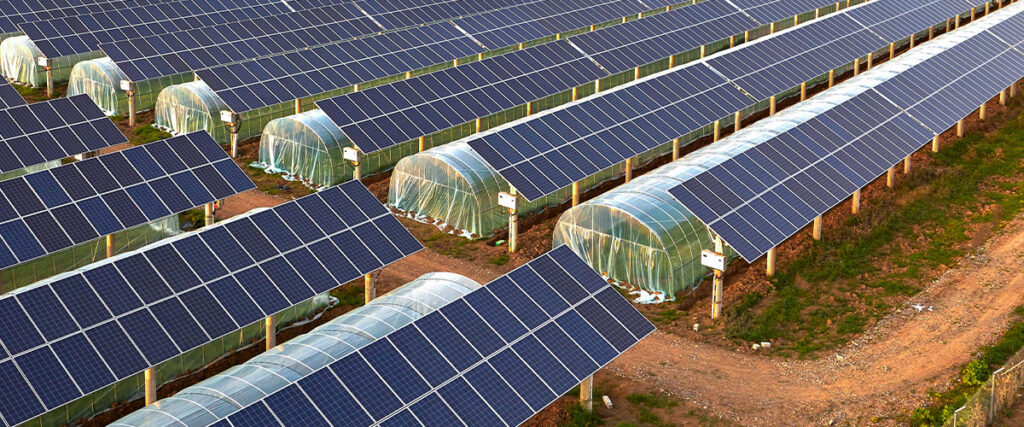
Europe’s agrivoltaics (agriPV) sector would benefit from integrating agriPV into meeting environmental standards for new projects, improved permitting and grid connection procedures and further research into the technology.
This is according to trade body SolarPower Europe, which presented these policy recommendations, alongside a swathe of information on agriPV projects for potential investors and developers, in its latest publication. The organisation’s ‘Agrisolar Handbook’ includes details on ownership and business model schemes for projects, and definitions of a number of types of agriPV facilities, alongside biodiversity and agronomic considerations.
Try Premium for just $1
- Full premium access for the first month at only $1
- Converts to an annual rate after 30 days unless cancelled
- Cancel anytime during the trial period
Premium Benefits
- Expert industry analysis and interviews
- Digital access to PV Tech Power journal
- Exclusive event discounts
Or get the full Premium subscription right away
Or continue reading this article for free
“The production of energy in conjunction with agricultural production is an important condition for the expected transition of the European economy towards a carbon-neutral economy,” said Yves Madre, president of think tank Farm Europe.
“Through its research, agrisolar can deliver greatly in this process, by finding ways for solar PV production to go hand in hand with an increase in agricultural production, a reduction in the ecological footprint of the latter, and an improvement in farmers’ incomes.”
Changes to the EU’s CAP
AgriPV has significant potential in Europe—figures from think tank Ember suggest that Central Europe alone could add 180GW of agriPV capacity—but the SolarPower Europe report suggests that EU legislation could be in need of reform if this potential is to be realised.
The report calls for “an adapted framework at the nexus between agricultural and energy policies”, and a clarification of the EU’s Common Agricultural Policy (CAP), an initiative that has seen the EU provide financial support for farmers since 1962, to make clear that agriPV projects would not lose access to CAP schemes due to the presence of a “non-agricultural activity” on agricultural land.
This is a significant piece of legislation—the CAP will allocate €387 billion (US$415.68 billion) in funding between 2021 and 2027—and there is precedent for the programme to include requirements for practices not considered directly agricultural, that could set a precedent for the inclusion of solar generating projects in the policy.
The latest iteration of the CAP, to be in force from 2023 to 2027, includes the requirement that farms that benefit from the CAP dedicate at least 3% of arable land to “biodiversity and non-productive elements”. The European Commission has also earmarked 40% of the CAP’s current budget for “climate and biodiversity” initiatives, and the presence of renewable power generation on European farms could fall under this category, but SolarPower Europe argues that this needs to be further clarified.
Making agriPV viable
The trade body also calls for the European Commission to integrate financial incentives for agriPV projects into the CAP’s existing infrastructure, such as providing bonuses to projects that apply for CAP support, which include agriPV facilities.
The need for financial support echoes arguments made by Caroline Plaza of the Bacquerel Institute in a piece for PV Tech Power earlier this year. Plaza noted that more comprehensively integrating financial support for agriPV could help establish new business models for Europe’s solar sector, where “contracts, ownership structures, remuneration schemes, risk-sharing mechanisms and levels of control must be carefully crafted to balance performance objectives with existing constraints.”
SolarPower Europe also suggests that, as agriPV installations can provide shade to and improve the soil health of agricultural projects, such structures should be considered part of a farming project’s overall carbon-reduction contribution, particularly considering that nearly half of the CAP budget is set aside for such initiatives.
The report adds that agriPV projects would benefit from simpler and more consistent permitting and grid connection rules across the EU, echoing a call made by many in the broader solar sector, and that the relative nascency of the agriPV industry means that the EU should support “further research and innovation” in agriPV.
Our publisher Solar Media is hosting the 12th Solar Finance & Investment Europe conference, 4-5 February at Novotel London West. Discussion topics will include the impact of geopolitical shifts on Europe’s energy landscape, the role of hybrid power purchase agreements and delivering a workforce for the future of the industry. See the official site for more details.






